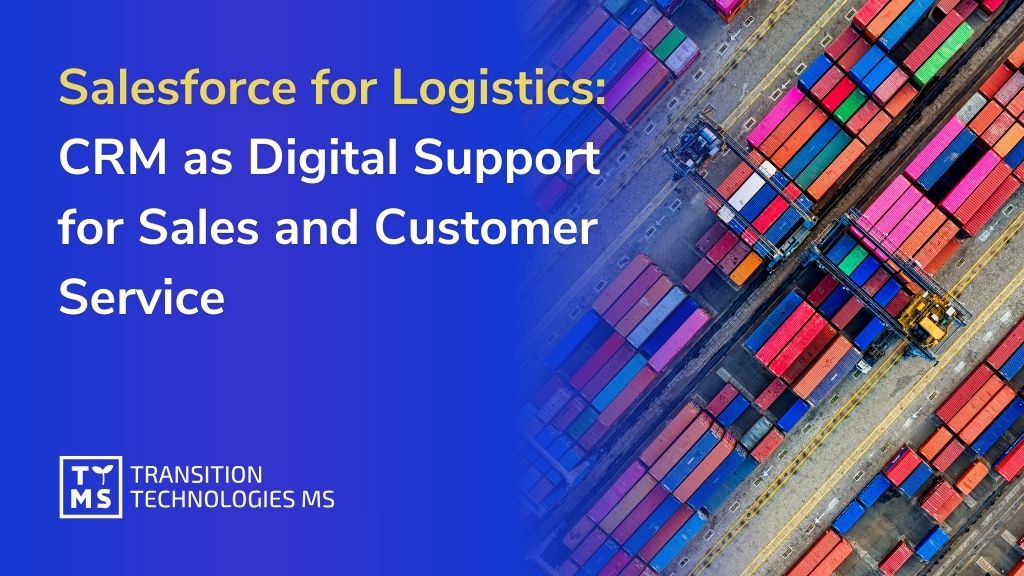
In today’s fast-paced, digital world, customer relationship management (CRM) plays a crucial role in keeping businesses thriving. Salesforce, one of the leading names in the CRM landscape, offers a variety of tools to help companies improve customer relationships and optimize their processes. But the big question many businesses face is: Salesforce Service Cloud or Sales Cloud—what’s the right fit for my business? This guide will break down the differences between the two platforms, helping you figure out which one suits your needs best and how it can impact your business.
1. Introduction to Salesforce Service Cloud vs Sales Cloud
1.1 Brief Overview of Salesforce’s Ecosystem
Salesforce is more than just a CRM; it’s an ecosystem of cloud-based tools designed to enhance everything from sales to customer service. Think of it as a collection of finely tuned instruments, each designed to solve specific business challenges. Among these, Sales Cloud and Service Cloud stand out as two of the most popular tools for businesses worldwide.
In simple terms, Sales Cloud is all about driving your sales team forward, while Service Cloud is focused on supporting your customers and ensuring their satisfaction. Both are valuable, but they serve different purposes.
1.2 Why Choosing the Right Salesforce Cloud Solution Matters
Deciding between Sales Cloud and Service Cloud isn’t just a matter of personal preference. It’s a decision that can dramatically influence how your business operates, how your customers are served, and ultimately, how successful your company becomes. It’s kind of like choosing between a sleek sports car and a sturdy SUV—they’re both great, but they’re designed for different roads.
The right choice depends on factors like your industry, business model, and long-term goals. If you’re a company with a focus on closing deals and managing a robust sales pipeline, Sales Cloud might be your best bet. On the other hand, if customer support is your top priority, Service Cloud could be the way to go. And for businesses that need both? It’s crucial to understand the strengths of each platform before making that decision.
2. Understanding Salesforce Sales Cloud
Salesforce Sales Cloud is designed to turbocharge your sales processes. With its market share of around 38.3%, it’s clearly a go-to for businesses that prioritize sales performance.
2.1 Key Features and Benefits
Sales Cloud comes loaded with tools that help sales teams perform better. Here are some standout features:
- Lead Management: Track and prioritize leads, ensuring no potential customer slips away.
- Opportunity Management: Keep an eye on deals, manage the sales pipeline, and forecast revenues.
- Contact Management: Get a 360-degree view of customers, tracking all interactions and preferences.
- Sales Forecasting: Use AI and analytics to predict sales trends and make better decisions.
- Mobile Access: Sales teams can work on the go with Salesforce’s mobile app.
- Customizable Dashboards: Get real-time insights into performance through dashboards tailored to your needs.
These features work together to help businesses close deals faster, manage relationships better, and, ultimately, grow.
2.2 Common Use Cases
Sales Cloud’s flexibility makes it ideal for a variety of industries:
- B2B Sales: Manage complex sales cycles with ease.
- Inside Sales: Use advanced tools to improve conversion rates through remote selling.
- Field Sales: Keep teams connected on the road with mobile access to customer data.
- Channel Sales: Track the performance of reseller networks and manage indirect sales.
With over 3,000 companies in the U.S. alone using Sales Cloud, it’s clear this tool is a top choice for businesses looking to improve their sales processes.
At TTMS (Transition Technologies MS), we’ve seen firsthand how Sales Cloud can transform sales operations. As a global IT company delivering innovative solutions and outsourcing services, we understand the importance of efficient sales processes. Our experience with Sales Cloud implementation has shown that businesses can significantly improve their sales performance, customer relationships, and overall productivity by leveraging these powerful features.
In conclusion, Salesforce Sales Cloud offers a comprehensive suite of tools designed to optimize the sales process from lead to close. Its market-leading position, extensive feature set, and proven track record make it a top choice for businesses looking to supercharge their sales efforts and drive growth in today’s competitive landscape.

3. Unpacking Salesforce Service Cloud
While Sales Cloud is about sales, Service Cloud is all about customer support. It helps businesses streamline their customer service operations, making it a crucial tool for improving customer satisfaction.
3.1 Key Features and Advantages
Here’s what makes Service Cloud stand out:
- Omni-channel Support: Manage customer inquiries across phone, email, social media, and more.
- Case Management: Track and resolve customer issues efficiently.
- Knowledge Base: Provide agents with easy access to solutions, speeding up response times.
- AI-Powered Chatbots: Use automation to handle simple queries, freeing up human agents for more complex cases.
- Field Service Management: Optimize on-site service operations.
- Customer Self-Service: Let customers solve their own problems with portals and knowledge centers.
These features come together to create a smoother, faster customer service experience, which in turn leads to higher satisfaction rates.
3.2 Real-Life Applications
Service Cloud has transformed customer service for a wide range of businesses. Here are a few examples:
- E-commerce Giant: Reduced average handling time by 40% after implementing Service Cloud.
- Healthcare Provider: Cut patient wait times by 50% and improved satisfaction by 30%.
- Financial Services: Achieved a 45% reduction in case resolution time and boosted retention by 35%.
These success stories show just how versatile and effective Service Cloud can be in various industries.
3.3 Real-life Application and Client testimonials
The impact of Service Cloud on businesses is significant and measurable. The widespread adoption of the platform reflects its popularity and effectiveness in delivering value across various industries. This success highlights how Service Cloud enhances customer engagement and operational efficiency, making it an essential tool for organizations seeking to improve their service offerings
At TTMS (Transition Technologies MS), we’ve witnessed firsthand the transformative power of Service Cloud. As a global IT company delivering innovative solutions and outsourcing services, we’ve helped numerous clients implement Service Cloud to revolutionize their customer service operations. Here’s a glimpse into how businesses are leveraging Service Cloud:
- E-commerce Giant: A large online retailer implemented Service Cloud to manage their high volume of customer inquiries. The result was a 40% reduction in average handling time and a 25% increase in first-call resolution rates.
- Healthcare Provider: A healthcare organization used Service Cloud to create a unified patient support system. They saw a 50% decrease in patient wait times and a 30% increase in patient satisfaction scores.
- Financial Services Firm: A bank integrated Service Cloud with their existing systems to provide personalized customer service. They experienced a 45% reduction in case resolution time and a 35% increase in customer retention.
One of our clients, a mid-sized software company, shared their experience: “After implementing Salesforce Service Cloud with TTMS’s guidance, we saw a dramatic improvement in our customer service metrics. Our response times decreased by 60%, and our customer satisfaction scores increased by 28% in just six months. The platform’s intuitive interface and powerful analytics have empowered our team to provide faster, more personalized service.”
To wrap things up, Salesforce Service Cloud brings an impressive arsenal of tools that can truly transform how businesses handle customer service. Its strong track record and the real-world successes businesses have seen make it a standout option for those looking to step up their customer support game. With companies becoming more customer-focused than ever, platforms like Service Cloud are sure to be key players in shaping the future of how we interact with and support our customers. As service expectations continue to rise, having a reliable and powerful solution like Service Cloud will be crucial for staying ahead in the game.
4. Detailed Comparison: Sales Cloud vs Service Cloud
When it comes to choosing between Salesforce Service Cloud vs Sales Cloud, businesses often find themselves at a crossroads. Both platforms offer powerful features, but they cater to different aspects of customer relationship management. Check this comparison to better understand differences.
4.1 Feature by Feature Analysis
- Primary Focus:
- Sales Cloud: Primarily designed for managing the sales process, from lead generation to closing deals.
- Service Cloud: Focused on customer service and support, handling customer inquiries and issues.
- Lead Management:
- Sales Cloud: Offers robust lead scoring, assignment, and nurturing capabilities.
- Service Cloud: While it can handle leads, its lead management features are not as extensive as Sales Cloud.
- Case Management:
- Sales Cloud: Basic case management functionality.
- Service Cloud: Advanced case routing, escalation, and resolution tracking.
- Customer 360 View:
- Sales Cloud: Provides a comprehensive view of customer interactions related to sales.
- Service Cloud: Offers a holistic view of customer service history and interactions across channels.
- Automation:
- Sales Cloud: Sales process automation, including lead assignment and follow-ups.
- Service Cloud: Service process automation, including case routing and knowledge base suggestions.
- Reporting and Analytics:
- Sales Cloud: Focused on sales metrics, pipeline analysis, and forecasting.
- Service Cloud: Emphasizes service metrics, customer satisfaction scores, and agent performance.
The difference between Sales Cloud and Service Cloud lies in their specialised functions tailored to sales and service processes respectively. Nevertheless, there is considerable overlap between the two services as they are built on the Salesforce platform and share core CRM functions.
4.3 License & Pricing Differences Explained
When comparing Sales Cloud and Service Cloud, pricing is an important consideration. While both offerings are tailored to meet different business needs, it’s essential to note that each project is individually priced based on specific requirements. For detailed information on Salesforce’s services and to obtain a personalized quote, please visit https://ttms.com/salesforce/ and contact us. Current price list of Salesforce, you can find on Salesforce official website.
Although the base prices are similar, the features included in each tier can differ between Sales Cloud and Service Cloud. Therefore, it’s crucial to evaluate which features align with your business needs. Contact us to explore how we can help you identify the best solutions for your organization.
4.3 Industry Types and Choosing Between Sales Cloud and Service Cloud
Choosing between Sales Cloud and Service Cloud should be guided by your industry and specific business needs:
E-commerce:
Typically benefits more from Service Cloud due to high customer service demands and the need for effective support channels.
B2B Companies:
Often find Sales Cloud more aligned with their needs, especially for managing long sales cycles and complex sales processes.
Healthcare:
Can leverage Service Cloud for effective patient care management and enhanced communication between providers and patients.
Retail:
May utilize a combination of both clouds to optimize sales strategies while ensuring excellent customer service.
Technology:
Companies in this sector might benefit from both solutions to manage sales processes and provide robust customer support.
It’s important to note that customer satisfaction is notably high for both platforms. Users consistently express their appreciation for Salesforce, highlighting its effectiveness in meeting their CRM needs. Many clients report a positive experience with both Sales Cloud and Service Cloud, emphasizing their ability to enhance business operations and improve customer engagement.
In conclusion, the choice between Salesforce Sales Cloud and Service Cloud should be based on your industry’s specific requirements. Many businesses find value in implementing both solutions to create a comprehensive CRM ecosystem that aligns with their unique goals.

5. Synergies Between Sales and Service Clouds
While Sales Cloud and Service Cloud are powerful tools in their own right, the true magic happens when they work in tandem. The combination of Salesforce sales and service cloud creates a holistic approach to customer relationship management that can revolutionize how businesses interact with their clients.
5.1 When It Makes Sense to Use Both
There are several scenarios where implementing both Sales & Service Cloud can provide significant advantages:
- Customer-Centric Businesses: Companies that prioritize the entire customer journey, from initial sale to ongoing support, benefit greatly from the combined power of both clouds.
- Complex Products or Services: Businesses offering products or services that require ongoing support or have lengthy sales cycles can leverage both platforms to ensure seamless transitions between sales and service teams.
- High-Growth Companies: As businesses scale, the need for robust sales and service solutions often grows simultaneously. Implementing both clouds from the start can facilitate smoother growth.
- Industries with High Customer Interaction: Sectors like retail, telecommunications, or financial services often require strong sales and service capabilities to meet customer expectations.
The integration of Sales Cloud and Service Cloud allows for a seamless customer experience, enabling sales and customer service teams to access the same customer information and history. This shared access to data ensures that all customer-facing teams are on the same page, leading to more personalized and efficient interactions.
Moreover, Salesforce offers a bundle called Salesforce Sales+Service Cloud that includes both products, allowing businesses to use both in one package for a complete customer-centric experience. This bundled approach not only simplifies implementation but also ensures that businesses can leverage the full power of both platforms without the complexity of managing separate systems.
6. Examples of companies using a combination of Sales Cloud and Service Cloud
Let’s look at some real-world examples of businesses that have successfully implemented both Service Cloud and Sales Cloud:
- Global Telecommunications Company: A major telecom provider implemented both Sales and Service Cloud to unify their customer experience. The sales team used Sales Cloud to manage leads and opportunities, while the service team leveraged Service Cloud to handle customer inquiries and technical support. The result was a 30% increase in customer satisfaction and a 25% boost in cross-sell opportunities.
- E-commerce Retailer: An online retailer integrated Sales and Service Cloud to create a 360-degree view of their customers. The sales team could see past purchase history and service interactions, allowing for more personalized product recommendations. Meanwhile, the service team had visibility into pending orders and sales interactions, enabling them to provide more informed support. This integration led to a 40% reduction in average handling time for customer inquiries and a 20% increase in repeat purchases.
- Software as a Service (SaaS) Provider: A growing SaaS company implemented both clouds to manage their entire customer lifecycle. The sales team used Sales Cloud to track leads and close deals, while the customer success team leveraged Service Cloud to onboard new clients and provide ongoing support. This seamless integration resulted in a 50% improvement in customer retention rates and a 35% increase in upsell opportunities.
- Manufacturing Company: A manufacturing company utilized the combined power of Sales and Service Cloud to streamline their complex sales process and after-sales support. The sales team used Sales Cloud to manage their lengthy sales cycles and multiple stakeholders, while the service team used Service Cloud to handle product inquiries, maintenance requests, and warranty claims. This integration led to a 45% reduction in sales cycle time and a 60% improvement in first-call resolution rates for service inquiries.
These success stories highlight the transformative power of integrating Salesforce sales and service cloud. By breaking down silos between sales and service departments, businesses can create a truly customer-centric organization that drives both revenue growth and customer satisfaction.
In conclusion, while Sales Cloud and Service Cloud are powerful tools individually, their combined implementation can create a synergy that elevates the entire customer experience. For businesses looking to provide seamless, personalized interactions throughout the customer journey, the integration of Sales & Service Cloud is a strategy worth considering.
7. The Economic Impact of Choosing Wisely Between Sales vs Service Cloud
When implementing Salesforce solutions, the decision between Sales Cloud, Service Cloud, or a combination of both can have significant economic implications for your business. Understanding these implications is essential for making an informed choice that aligns with your long-term goals.
7.1 Long-Term ROI Considerations
To evaluate the long-term ROI of Sales Cloud, Service Cloud, or a combined solution, consider the following factors:
7.2 Customer Lifetime Value (CLV)
Both Sales Cloud and Service Cloud can enhance CLV by improving upselling and cross-selling opportunities, while also fostering customer satisfaction and loyalty. A combined approach maximizes CLV by providing a seamless customer experience from acquisition to retention.
7.3 Operational Efficiency
Utilizing both clouds can significantly reduce manual tasks and streamline processes, leading to long-term cost savings. The automation features available allow your team to manage higher volumes without the need for proportional increases in staffing.
7.4 Data-Driven Decision Making
The analytics capabilities within both clouds can lead to more informed business decisions, helping to avoid costly mistakes and identify new revenue opportunities.
7.5 Adaptability to Market Changes
Investing in a flexible CRM solution like Salesforce enables your business to quickly adapt to market changes, potentially providing a competitive advantage.
7.6 Integration Capabilities
Consider the long-term value of integrating Sales and Service Cloud with other business systems, creating a unified ecosystem that drives efficiency across your organization.
7.7 Scalability
The ability to easily scale your CRM solution as your business grows can provide significant long-term cost savings without requiring major overhauls.
When evaluating long-term ROI, it’s crucial to consider factors beyond immediate costs. For instance, businesses leveraging Salesforce solutions often find that improved efficiency and customer engagement lead to substantial savings over time. By carefully analyzing your business needs and growth projections, you can choose a solution that not only fits your current budget but also positions your company for sustainable success.
In conclusion, the right CRM solution is not just a cost center but a powerful tool for driving revenue growth and enhancing customer satisfaction.

8. How TTMS can help you with implementation of the best Salesforce Service in your company?
As a global IT company specializing in innovative solutions and outsourcing services, TTMS (Transition Technologies MS) is uniquely positioned to assist your organization in implementing the ideal Salesforce service. Our expertise spans across both Sales Cloud and Service Cloud, ensuring that we can guide you towards the most effective solution for your specific business needs.
Here’s how TTMS can support your Salesforce implementation journey:
- Comprehensive Needs Assessment: Our experienced consultants will conduct a thorough analysis of your business processes, customer interactions, and growth objectives. This assessment helps us determine whether Sales Cloud, Service Cloud, or a combination of both would best serve your company’s needs.
- Customized Implementation Strategy: Based on the needs assessment, we’ll develop a tailored implementation plan. This strategy will outline how to integrate Salesforce seamlessly into your existing systems, ensuring minimal disruption to your operations while maximizing the benefits of the platform.
- Data Migration and Integration: TTMS has extensive experience in handling complex data migrations. We’ll ensure that your valuable customer data is securely transferred to your new Salesforce environment, maintaining data integrity throughout the process. Our team can also integrate Salesforce with your other business systems for a unified operational ecosystem.
- Customization and Development: Every business is unique, and off-the-shelf solutions often fall short. Our developers can create custom applications, workflows, and interfaces within Salesforce to match your specific business processes and requirements.
- Training and Change Management: Successful implementation goes beyond technical setup. We provide comprehensive training programs for your staff to ensure they can leverage the full potential of Salesforce. Our change management strategies help smooth the transition, promoting user adoption and maximizing your return on investment.
- Ongoing Support and Optimization: Our relationship doesn’t end at implementation. TTMS offers continued support to address any issues that may arise post-launch. We also provide regular system health checks and optimization recommendations to ensure your Salesforce solution evolves with your growing business needs.
- Scalability Planning: As your business grows, your CRM needs may change. We help you plan for the future, ensuring that your Salesforce implementation can scale effectively as your company expands.
- Security and Compliance: TTMS prioritizes data security and regulatory compliance. We’ll ensure that your Salesforce implementation adheres to relevant industry standards and regulations, protecting your sensitive customer data.
- Performance Monitoring and Reporting: We set up robust monitoring and reporting systems within Salesforce, allowing you to track key performance indicators and make data-driven decisions.
- Continuous Innovation: Salesforce regularly releases new features and updates. Our team stays abreast of these developments and can help you leverage new functionalities to maintain your competitive edge.
By partnering with TTMS for your Salesforce implementation, you’re not just getting a technical service provider. You’re gaining a strategic partner committed to your business success. Our global perspective, combined with our deep Salesforce expertise, allows us to bring best practices and innovative solutions to your implementation project.
Whether you’re considering Sales Cloud, Service Cloud, or a combination of both, TTMS has the knowledge and experience to guide you through every step of the process. From initial planning to post-implementation support, we’re dedicated to ensuring that your Salesforce solution drives tangible business value and positions your company for long-term success in an increasingly competitive marketplace. Contact us now!
Curious how businesses like yours have transformed their customer relations with Salesforce! Check out our Case Studies:
- Salesforce Security Compliance Case Study in Pharma
- Salesforce NPSP: A revolution in NGO management
- Salesforce Implementation Case Study at a pharmaceutical company
- Salesforce Implementation Case Study at KEVIN: Empowering Small Business Growth
- We found Salesforce wooden, we left brick
- and more: Explore TTMS Salesforce Case Studies: Proven Success Across Industries






